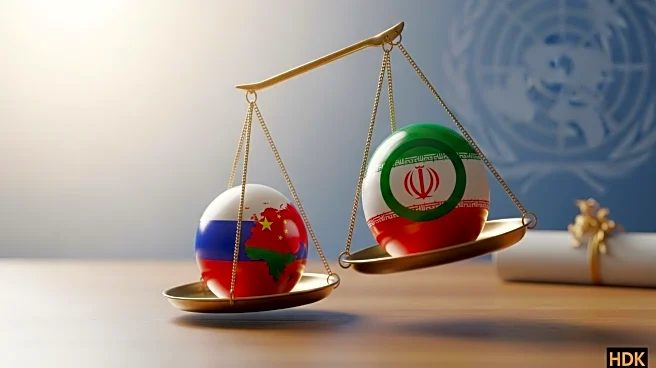What is the story about?
What's Happening?
The United Nations Security Council has rejected a resolution proposed by Russia and China to delay the reimposition of international sanctions on Iran. These sanctions, part of the 'snapback' mechanism, are set to take effect as planned, following accusations by Britain, France, and Germany that Iran violated the 2015 nuclear deal. The sanctions will freeze Iranian assets abroad, halt arms transactions with Tehran, and impose penalties on any development of its ballistic missile program. This decision comes after weeks of unsuccessful diplomatic negotiations aimed at reaching a new agreement.
Why It's Important?
The reimposition of sanctions is expected to further strain Iran's already struggling economy, which has been under pressure due to existing sanctions and internal challenges. The decision could escalate tensions between Iran and Western countries, potentially impacting global diplomatic relations and regional stability. The sanctions also highlight the ongoing challenges in international diplomacy regarding nuclear non-proliferation and the enforcement of international agreements.
What's Next?
With the sanctions set to take effect, Iran may respond by withdrawing from the Nuclear Nonproliferation Treaty, a move that could further isolate the country internationally. The situation may also prompt reactions from other global powers, potentially leading to new diplomatic efforts or increased tensions in the region.
Beyond the Headlines
The decision underscores the complexities of international diplomacy and the challenges of enforcing nuclear agreements. It also raises questions about the effectiveness of sanctions as a tool for achieving compliance and the potential humanitarian impact on the Iranian population.


















